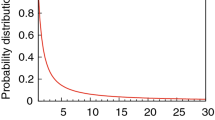Abstract
Research in swarm robotics has shown that robot swarms are effective in the exploration of unknown environments. However, little work has been devoted to port the exploration capabilities of robot swarms into the context of mapping. Indeed, conceiving robot swarms that can map an unknown environment in a robust, scalable, and flexible way is an open issue. In this paper, we investigate a swarm mapping method in which robots first individually map the environment by random walk and then, we merge their maps into a single, global one. We focus on five variants of random walk and we compare the quality of the maps that a swarm produces when exploring the environment using these variants. Our experiments with ten e-puck robots show that, despite the individual maps being incomplete by themselves, it is possible to collectively map the environment by merging them. We found that the quality of the map depends on the exploration behavior of the individuals. Our results suggest that one of the variants of random walk, the ballistic motion, gives better mapping results for closed environments.
All experiments were performed by MK and DGR. The article was drafted by MK and DGR and revised by the three authors. The research was directed by MB.
Access this chapter
Tax calculation will be finalised at checkout
Purchases are for personal use only
Similar content being viewed by others
Change history
15 August 2019
In the metadata (“Cite this chapter as” section) of the originally published XML version and the author index of the volume the name of the second author was incorrectly stated as “Ramos, David Garzón”. The name has been corrected to “Garzón Ramos, David”.
References
Barca, J.C., Sekercioglu, Y.A.: Swarm robotics reviewed. Robotica 31(3), 345–359 (2013)
Borenstein, J., Koren, Y.: Real-time obstacle avoidance for fast mobile robots. IEEE Trans. Syst. Man Cybern. 19(5), 1179–1187 (1989)
Dimidov, C., Oriolo, G., Trianni, V.: Random walks in swarm robotics: an experiment with kilobots. In: Dorigo, M., et al. (eds.) ANTS 2016. LNCS, vol. 9882, pp. 185–196. Springer, Cham (2016). https://doi.org/10.1007/978-3-319-44427-7_16
Dorigo, M., Birattari, M., Brambilla, M.: Swarm robotics. Scholarpedia 9(1), 1463 (2014)
Dorigo, M., et al.: a novel concept for the study of heterogeneous robotic swarms. IEEE Robot. Autom. Mag. 20(4), 60–71 (2013)
Feynman, R.P., Leighton, R.B., Sands, M.L.: The Feynman Lectures on Physics Volume 1: Mainly Mechanics, Radiation, and Heat. Basic Books, New York (2011)
Fox, D., Ko, J., Konolige, K., Limketkai, B., Schulz, D., Stewart, B.: Distributed multirobot exploration and mapping. Proc. IEEE 94(7), 1325–1339 (2006)
Francesca, G., Brambilla, M., Brutschy, A., Trianni, V., Birattari, M.: AutoMoDe: a novel approach to the automatic design of control software for robot swarms. Swarm Intell. 8(2), 89–112 (2014)
Galceran, E., Carreras, M.: A survey on coverage path planning for robotics. Rob. Auton. Syst. 61(12), 1258–1276 (2013)
Garattoni, L., Francesca, G., Brutschy, A., Pinciroli, C., Birattari, M.: Software infrastructure for e-puck (and TAM). Technical report. TR/IRIDIA/2015-004, IRIDIA, Université libre de Bruxelles, Belgium (2015)
Grisetti, G., Stachniss, C., Burgard, W.: Improving grid-based slam with rao-blackwellized particle filters by adaptive proposals and selective resampling. In: Proceedings of the 2005 IEEE International Conference on Robotics and Automation. pp. 2432–2437. IEEE Press (2005)
Grisetti, G., Stachniss, C., Burgard, W.: Improved techniques for grid mapping with rao-blackwellized particle filters. IEEE Trans. Rob. 23(1), 34–46 (2007)
Hörner, J.: Map-merging for multi-robot system. Master’s thesis, Univerzita Karlova (2016)
Kegeleirs, M., Garzón Ramos, D., Birattari, M.: Random walk exploration for swarm mapping: supplementary material (2019). http://iridia.ulb.ac.be/supp/IridiaSupp2019-003/index.html
Mondada, F., et al.: The e-puck, a robot designed for education in engineering. In: Gonçalves, P., Torres, P., Alves, C. (eds.) Proceedings of the 9th Conference on Autonomous Robot Systems and Competitions. Instituto Politécnico de Castelo Branco, pp. 59–65, Portugal (2009)
Pasternak, Z., Bartumeus, F., Grasso, F.W.: Lévy-taxis: a novel search strategy for finding odor plumes in turbulent flow-dominated environments. J. Phys. A Math. Theoret. 42(43), 434010 (2009)
Pinciroli, C., et al.: ARGoS: a modular, parallel, multi-engine simulator for multi-robot systems. Swarm Intell. 6(4), 271–295 (2012)
Portugal, D., Rocha, R.: A survey on multi-robot patrolling algorithms. In: Camarinha-Matos, L.M. (ed.) DoCEIS 2011. IAICT, vol. 349, pp. 139–146. Springer, Heidelberg (2011). https://doi.org/10.1007/978-3-642-19170-1_15
Quigley, M., et al.: ROS: an open-source robot operating system. In: ICRA Workshop on Open Source Software. vol. 3, p. 5. IEEE Press (2009)
Ramachandran, R.K.: Exploration, mapping and scalar field estimation using a swarm of resource-constrained robots. Ph.D. thesis, Arizona State University (2018)
Renshaw, E., Henderson, R.: The correlated random walk. J. Appl. Probab. 18(02), 403–414 (1981)
Rone, W., Ben-Tzvi, P.: Mapping, localization and motion planning in mobile multi-robotic systems. Robotica 31(1), 1–23 (2013)
Saeedi, S., Trentini, M., Seto, M., Li, H.: Multiple-robot simultaneous localization and mapping: a review. J. Field Rob. 33(1), 3–46 (2016)
Schroeder, A., Ramakrishnan, S., Kumar, M., Trease, B.: Efficient spatial coverage by a robot swarm based on an ant foraging model and the lévy distribution. Swarm Intell. 11(1), 39–69 (2017)
Zaburdaev, V., Denisov, S., Klafter, J.: Lévy walks. Rev. Mod. Phys. 87(2), 483–530 (2015)
Acknowledgements
The project has received funding from the European Research Council (ERC) under the European Union’s Horizon 2020 research and innovation programme (grant agreement No 681872). Mauro Birattari acknowledges support from the Belgian Fonds de la Recherche Scientifique – FNRS. David Garzón Ramos acknowledges support from the Colombian Administrative Department of Science, Technology and Innovation – COLCIENCIAS.
Author information
Authors and Affiliations
Corresponding authors
Editor information
Editors and Affiliations
Rights and permissions
Copyright information
© 2019 Springer Nature Switzerland AG
About this paper
Cite this paper
Kegeleirs, M., Garzón Ramos, D., Birattari, M. (2019). Random Walk Exploration for Swarm Mapping. In: Althoefer, K., Konstantinova, J., Zhang, K. (eds) Towards Autonomous Robotic Systems. TAROS 2019. Lecture Notes in Computer Science(), vol 11650. Springer, Cham. https://doi.org/10.1007/978-3-030-25332-5_19
Download citation
DOI: https://doi.org/10.1007/978-3-030-25332-5_19
Published:
Publisher Name: Springer, Cham
Print ISBN: 978-3-030-25331-8
Online ISBN: 978-3-030-25332-5
eBook Packages: Computer ScienceComputer Science (R0)




